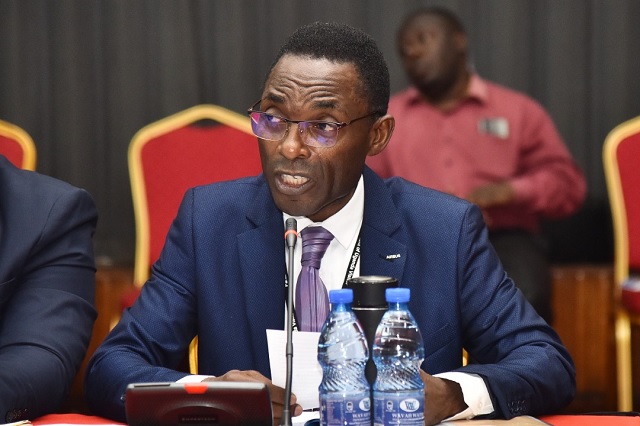Uganda Airlines has been ordered by the court to pay its former chief executive officer, Cornwell Muleya, Shs 455 million in compensation and benefits over unlawful dismissal.
Justice Anthony Wabwire Musana of the Industrial Court found that Muleya’s dismissal in 2022 was both procedurally and substantively unfair.
“We find his dismissal to be both procedurally and substantively unfair and unlawful,” Justice Musana declared. “The Respondent failed to accord the Claimant notice of the oral hearing to defend himself, suggesting instead, without cogent evidence, that he had locked himself out.”
Muleya was appointed Uganda Airlines CEO in February 2020 on a renewable 12-month contract, later extended for 18 months. However, in April 2021, the board asked him to take leave following allegations of mismanagement raised by the minister of Works and Transport, Gen Katumba Wamala.
He was later suspended in May 2021 for three months pending investigations, which were then extended for another three months. In February 2022, Muleya was issued a termination letter — a move he challenged in court as illegal and unjustified.
Through his lawyer Pearl Bekunda, of Muwema & Co. Advocates, Muleya argued that his dismissal violated the Employment Act and the airline’s Human Resource Manual, claiming that he was never accorded a proper hearing and that his suspension exceeded the legal four-week limit.
Fred Muwema: The lawyer indebted city tycoons turn to for rescue
He demanded reinstatement or compensation, including unpaid benefits, severance, damages for reputational harm, and a certificate of service.
However, the airline, through its legal team led by Ms Byarugaba Kusiima, insisted that Muleya’s dismissal was lawful. It claimed he was notified of disciplinary proceedings but failed to attend the hearing, effectively “locking himself out.”
The defence also argued that Muleya’s contract allowed termination by notice and that all his dues, including salary arrears, notice pay, and gratuity, had been paid.
However, the airline admitted that the termination letter referred to a non-existent clause (11a) in his contract, which Muleya’s counsel said reflected poor drafting and procedural confusion.
Court rules
The Court rejected the airline’s argument that Muleya refused to attend his disciplinary hearing. Justice Musana said there was no proof that he had been properly served with a notice for the oral hearing set for November 11, 2021, the meeting that ultimately recommended his termination.
“It is implausible that the Respondent (Uganda Airlines) failed to serve the Claimant (Muleya) when he had previously been effectively served,” the judge noted.
“The Respondent did not employ any technology that might have aided effective service of the notice, such as email or WhatsApp.”
The court said Uganda Airlines had all Muleya’s contact details but failed to prove any attempt to reach him electronically or through its HR systems.
On the suspension, Justice Musana ruled that the six-month suspension contravened Section 63 of the Employment Act, which limits such suspension to four weeks.
“A suspension lasting more than four weeks without disciplinary proceedings is considered an unfair labour practice,” the judge held, calling the airline’s extension “unlawful.”
He further said that although the termination was disguised as a normal termination by notice, it was, in fact, a “disguised dismissal” since it followed incomplete disciplinary proceedings.
While Muleya had asked to be reinstated as CEO, the court declined, reasoning that the relationship between the two parties had “soured beyond repair.”
“The employment relationship is built on mutual trust and confidence,” Musana said. “In the present circumstances, reinstatement would not be appropriate.”
Muleya had wanted Shs 1 billion in reputational damages, but the court rejected, saying defamation had not been properly pleaded or proven.
“The alleged malicious and false statements were not pleaded in the memorandum of claim,” Musana ruled. “This Court has not had visibility of the alleged defamatory words, and the claim falls.”
Justice Musana said employers must observe procedural fairness in disciplinary processes.
“The right to terminate an employee is not absolute or automatic in all circumstances,” he wrote in his 25-page ruling.
“We declare that the Claimant was unfairly and unlawfully suspended and dismissed from employment with the Respondent,” the judgment stated. “It is so ordered.”
Other panel members were: Adrine Namara, Susan Nabirye, and Michael Matovu.







